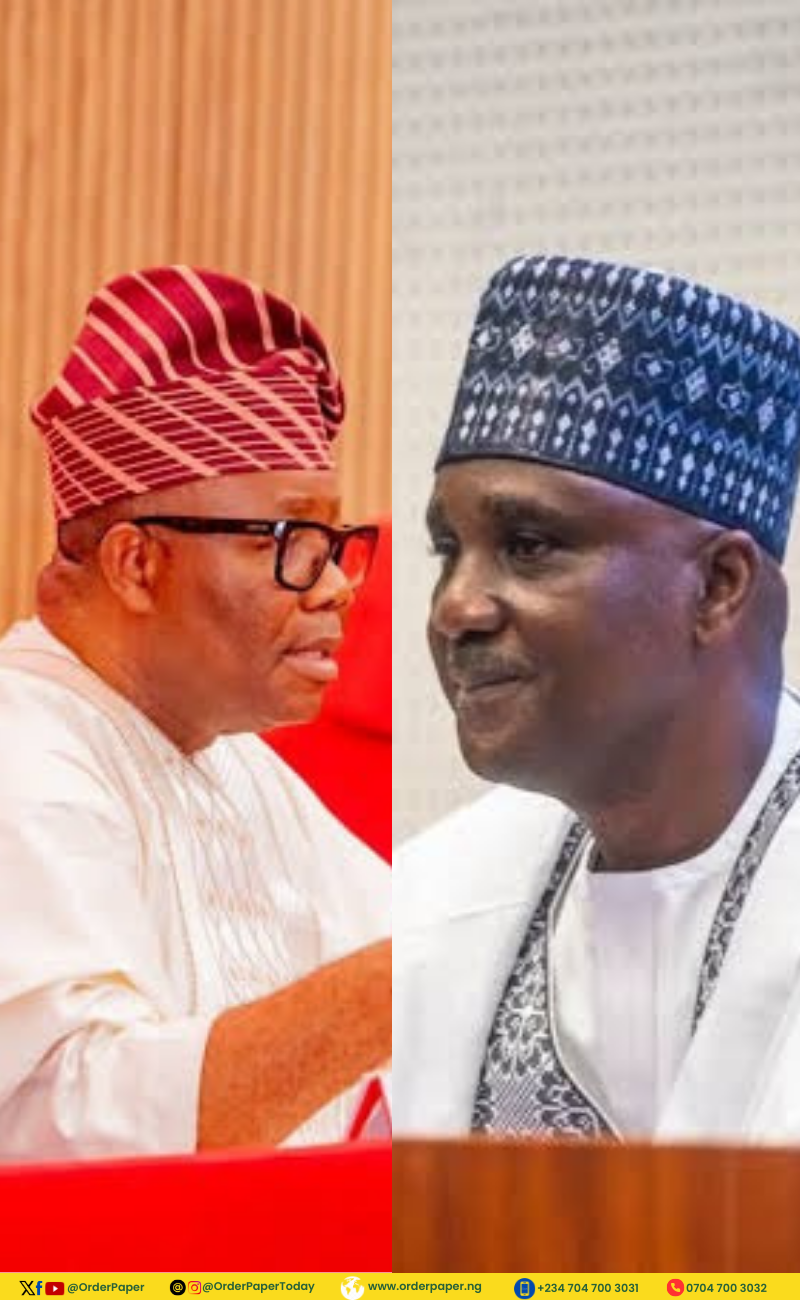In this opinion piece, Michael Olaogun argues that Nigeria’s democracy gains are limited by lack of data-driven nation-building efforts

Since the fifth century, the concept of democracy as a “people-oriented” system of government has permeated different parts of the world, adapting to various cultural and historical contexts with its intention to promote citizens’ government.
This is defined as “government of the people, by the people, for the people” attributed to Abraham Lincoln. As such, it is considered the bedrock of modern governance.
Democracy as a style of government has remained a dominant force in Africa’s developmental journey amidst complex and multifaceted socioeconomic challenges, and Nigeria is not an exception. By democratic indices, Nigeria has traveled far, but her journey has been characterized with errors of commission and omission by successive leaders.
After about twenty-five years of return to democratic rule in 1999, the anticipated results of democracy remain largely unfulfilled for average Nigerians.
While recognising that periodic elections have continued since 1999, democratic elements such as freedom of speech, rule of law, separation of powers, transparency and accountability, among others, remain fragile.
Chief among the democratic under-performance is the inadequate use of evidence-based decision-making in governance. The development of any nation into a stable and progressive state is anchored on the strength its democratic institutions possess in the use of credible, timely and measurable data as part of developmental strategies.
Nigeria’s democracy, often described as matured by some political elites, is largely connected to its enduring pattern in elections. However, the democratic ecosystem is no doubt dominated by weak institutions, personality-driven politics and weak accountability mechanisms.
Elections in Nigeria are routinely marred by logistical failures, voter suppression and alleged judicial ambiguities. These flaws are not just technical, they are symptomatic of a kind of political atmosphere that is allergic to transparency and resistant to reform efforts. The absence of reliable data contributes significantly to this dysfunction.
For example, voter registration and elections always remain contentious at the national and sub-national level; census figures are outdated; and economic policies are frequently built on approximations rather than clear metrics. Without credible information, policy-making becomes speculative, and nation-building turns into guesswork that keeps the nation on a spot.
Evidence-based governance is not just a bureaucratic opulence, it is the engine of functional democracy where aspirations of citizens are met. Decisions made with credible and reliable data will in no small measure lead to better outcomes across sectors of the economy. It will also enhance transparency, allowing citizens to measure progress, hold leaders accountable and trust public institutions.
Nigeria’s development trajectory often travel on a speculative tale. The government launches policies like social investment programs or economic stimulus packages without comprehensive monitoring and evaluation frameworks. As a result, failed initiatives are repeated, successful ones are neglected, and scarce resources are often wasted.
In institutionalising evidence-based nation building, there is the need to overhaul Nigeria’s data infrastructure. This begins with strengthening agencies like the National Bureau of Statistics (NBS) and sister institutions, ensuring they are autonomous, adequately funded and insulated from political interference. Furthermore, national policies from budget allocations to security strategies must be required to pass through rigorous impact assessments and public disclosure mechanisms.
The roles of civil society, academia and other think tank institutions cannot be overemphasised. Research must be democratized and translated from academic journals into consumable insights for policymakers and citizens alike. Ministries, Departments and Agencies should establish data partnerships with universities, think tanks and international organisations to co-create solutions rooted in evidence, not perception or assumption.
Democracy thrives when citizens are not just voters, but informed participants on socioeconomic issues. Digital literacy and civic education should be prioritized so that Nigerians can interpret public data, question false claims, and demand for facts. The media must shift from sensationalism to investigative journalism that interrogates policies with data.
Moreover, political parties and their manifestos must be scrutinised through data lens. As such, campaigns should not be based on charisma and ethnic loyalty, but on track records, statistics, and measurable promises.
Conclusively, the road to a functional democracy in Nigeria does not end at the ballot box. It extends into the corridors of evidence-based policy formulation and the architecture of governance. Without a deliberate shift to evidence-based nation-building, Nigeria will continue to recycle old problems under different regimes.
The choice before the nation is stern; either to continue in the comfort of mediocrity or embrace the challenge of building a democracy that not only votes, but also thinks and asks fundamental questions from the duty bearers. Only by rooting Nigeria’s democratic journey in facts and fostering a culture of accountability can the nation hope to transform its abundant potential into tangible and meaningful progress.
Olaogun can be reached via molaogun@researchenterprisesystems.org




